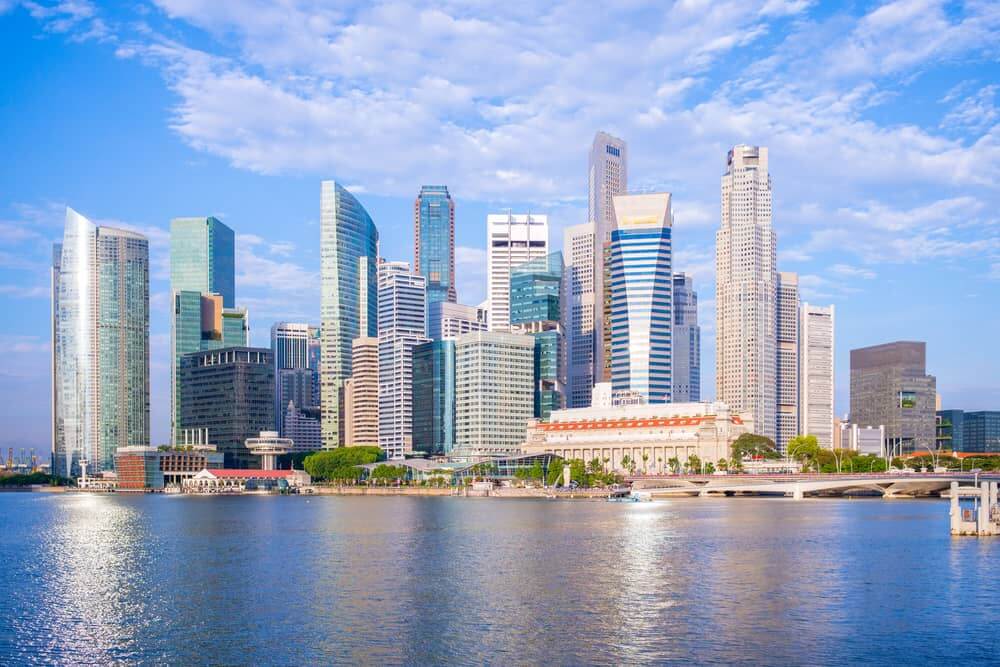Expat health insurance for Singapore: A complete guide
Learn everything you need to know about expat health insurance for Singapore, from finding the best providers to accessing healthcare and managing costs.

Singapore is well known for its low taxation, the minimal cost of living, and warm, pleasant climate. Also known as the hub to Asia, Singapore is notoriously safe and welcoming. Living and working in the city is a dream shared by many.
Luckily, the job market in the Asian city is steadily growing. More industries are popping up, and there’s a huge increase in the number of expats and locals founding startups. Finding a job in Singapore is highly doable for expats - but how do you get started?
Before you get started, a word.
Managing multiple international bank accounts is quite complicated. To make things worse, most traditional banks charge high fees for foreign and multi-currency accounts.
To get the best deal, you should consider using a service such as Wise, which gives you the mid-market exchange rate. Open a Wise account for free and with no monthly fees*.
It allows you to convert and hold 40+ different currencies, all from the same account. Plus, you can spend like a local with the Wise international debit card, which can be used in 150+ countries. It’s ideal for people looking to manage their money between the UK and Singapore, and around the world too.
Now, back to what you came here to read.
This guide will walk you through 8 steps for finding a job in Singapore.
Before getting into an exhaustive job search, it’s a good idea to make sure you’re eligible to work in Singapore. There are different kinds of work permits based on your qualifications. The Ministry of Manpower in Singapore has published an online self-assessment tool, to gauge your likelihood of eligibility.
While the assessment can give you an idea, you shouldn’t take it as a guarantee that you’ll be eligible. Some factors, like permit quotas and your personal background, aren’t calculated with the online assessment. However, it can potentially save you some time.
Also, keep in mind that in most cases you can’t apply for a work pass without a job in place and a salary offer that meets a minimum requirement. The only pass category that is not connected to your employer is the Personalised Employment Pass (PEP)². Therefore, applying for your Singapore work visa is one of the last steps you’ll take.
While Singapore is host to many markets, some industries are stronger than others. Historically, Singapore has been a welcoming home to finance professionals, especially those in audit and securities.
While the financial job market is as strong as ever, new industries are rising quickly in the Southern Asian city. Jobs for IT workers, digital marketers and compliance specialists are surging.
Some of the most thriving industries at the moment are banking and finance, software and technology, artificial intelligence and healthcare. Demand in the fields of data science and analytics is also high, as well as manufacturing and biotechnology. Other prevalent roles in Singapore include mental health care and tourism and hospitality.
Besides researching the most in-demand jobs, you can also explore the average salaries for those positions in Singapore. This can help you get an idea of what you can expect in a future job and see if that’s satisfying for you. Also, skip a couple of steps to the interview - employers like it when you’re informed on salary averages in their industry.
Before committing to work in Singapore, it’s a good idea to review whether the most common employment practices are a good fit for your lifestyle.
Once again, the Ministry of Manpower has an incredibly helpful and well organized section dedicated to this on their website. With information about skill training, leaves of absence, holidays, hours, contracts, and much more, this comprehensive list of employment resources will help you get an understanding of what working in Singapore would be like.
One of the best places to look for open positions in Singapore is online. With a multitude of web resources available to aid in your search, the following sites are some of the biggest and most used by Singapore job searchers:
Even with most openings online, there are plenty of advantages to working with a recruitment agency for your job search in Singapore. A recruiter will help you work on your CV, cover letter and interview preparations.
They’ll also give you a better understanding of your industry and potential employer, including tips about the company’s history and culture.
While it’s important to do your research and choose the agency that’s the best fit for your industry and skills, the following have been well reviewed as trusted agencies in the city.
Networking is very important when looking for jobs anywhere and is no less crucial in Singapore. Some great groups to meet with if you have a chance to visit the city during your job search include:
If you can’t get to Singapore, it’s still a good idea to network. Reaching out to other professionals on LinkedIn, either through their blogs or on Twitter, can yield great results in getting job leads and introductions to businesses in Singapore.
A good way to network while searching for a job is through volunteer work. It will also boost your confidence and make your resume look better. The Singaporean government has a website dedicated to volunteering opportunities only and it’s worth checking out.
Getting a job offer is a huge accomplishment, but it doesn’t represent the final step in the hiring process. Next, you’ll need to apply for and obtain a Singapore work visa.
Luckily, Singapore is a multicultural city that’s home to many expats, and is typically welcoming of foreigners seeking visas. To obtain one, you’ll need a job offer, to pay a registration fee and to submit your application. You can apply for your visa online and have it processed in just 7 days. Here, you can also check all the types of work visas available to assess which one best applies for your case.
Before you apply, it’s important to know what type of visa you’re eligible for. There’s a couple of them, depending on your skills and qualifications. They can be divided in three groups: Professionals, Skilled and semi-skilled workers and Trainees and students.
Here’s an overview of passes in the Professionals category, along with who they’re suitable for:
When it comes to Skilled and semi-skilled workers, the categories are the following:
Finally, the Trainees and students visas are available in the following forms:
Once your visas and currency exchange are in order, you’re ready to move to Singapore! As a multicultural hub that takes pride in its safe and friendly environment, adapting to life in Singapore can prove much easier than doing so in other Asian cities.
The majority of the people speak English and there are plenty of available (and excellent) cuisines. Finding housing isn’t the crunch that it can be in other business hubs like New York and London. For tips and information about living in Singapore, check out Living In Singapore’s excellent compiled list of expat blogs.
Got the job and sorted all your documents? Congratulations! You're ready to move. If you need to make payments before arriving in Singapore you could take a look at a low-cost international transfer option with Wise. You’ll be able to send money using the mid-market rate and just for a small transparent fee (which will most likely be cheaper than your bank)*.
Getting a Wise account can be a financially-wise choice if you plan on doing international transfers regularly. With it, you’ll be able to send and manage dozens of different currencies, all from the same account.
Sources used for this article:
Sources checked on 28-Nov-2022.
*Please see terms of use and product availability for your region or visit Wise fees and pricing for the most up to date pricing and fee information.
This publication is provided for general information purposes and does not constitute legal, tax or other professional advice from Wise Payments Limited or its subsidiaries and its affiliates, and it is not intended as a substitute for obtaining advice from a financial advisor or any other professional.
We make no representations, warranties or guarantees, whether expressed or implied, that the content in the publication is accurate, complete or up to date.

Learn everything you need to know about expat health insurance for Singapore, from finding the best providers to accessing healthcare and managing costs.

Discover the pros and cons of living in Singapore in this handy expat guide for UK nationals, including tips on where to live in Singapore and safety advice.

Find out everything you need to know about Singapore RSU tax here in our essential guide, including current tax rates.

Everything you need to know about moving to Singapore from the UK. Read about visas, popular expat destinations, healthcare and more.

Are you curious to learn more about the cost of living in Singapore, read this article. It covers topics such as: living expenses, average salary, and more.

Singapore is a small but prosperous country. More than 33,000 babies are born there each year, and more than 16 million tourists visit each year. If you’re a...